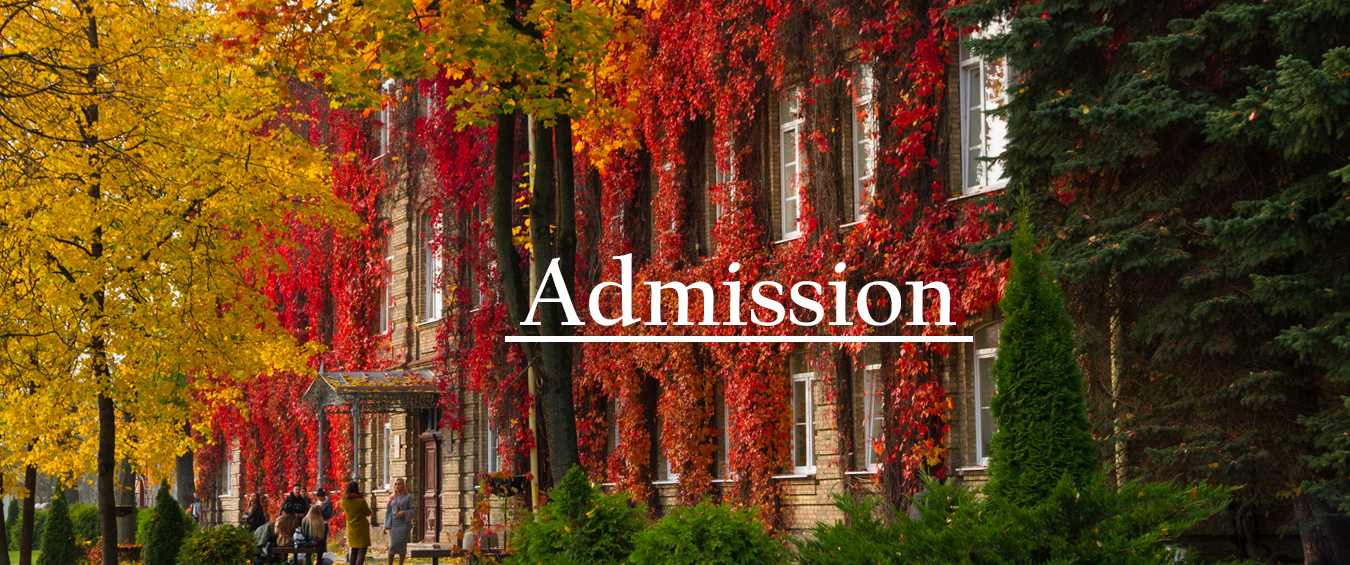
Yanka Kupala
State University of Grodno
Super User
The Minister of Education of the Republic of Belarus Igor Karpenko visits the Yanka Kupala State University
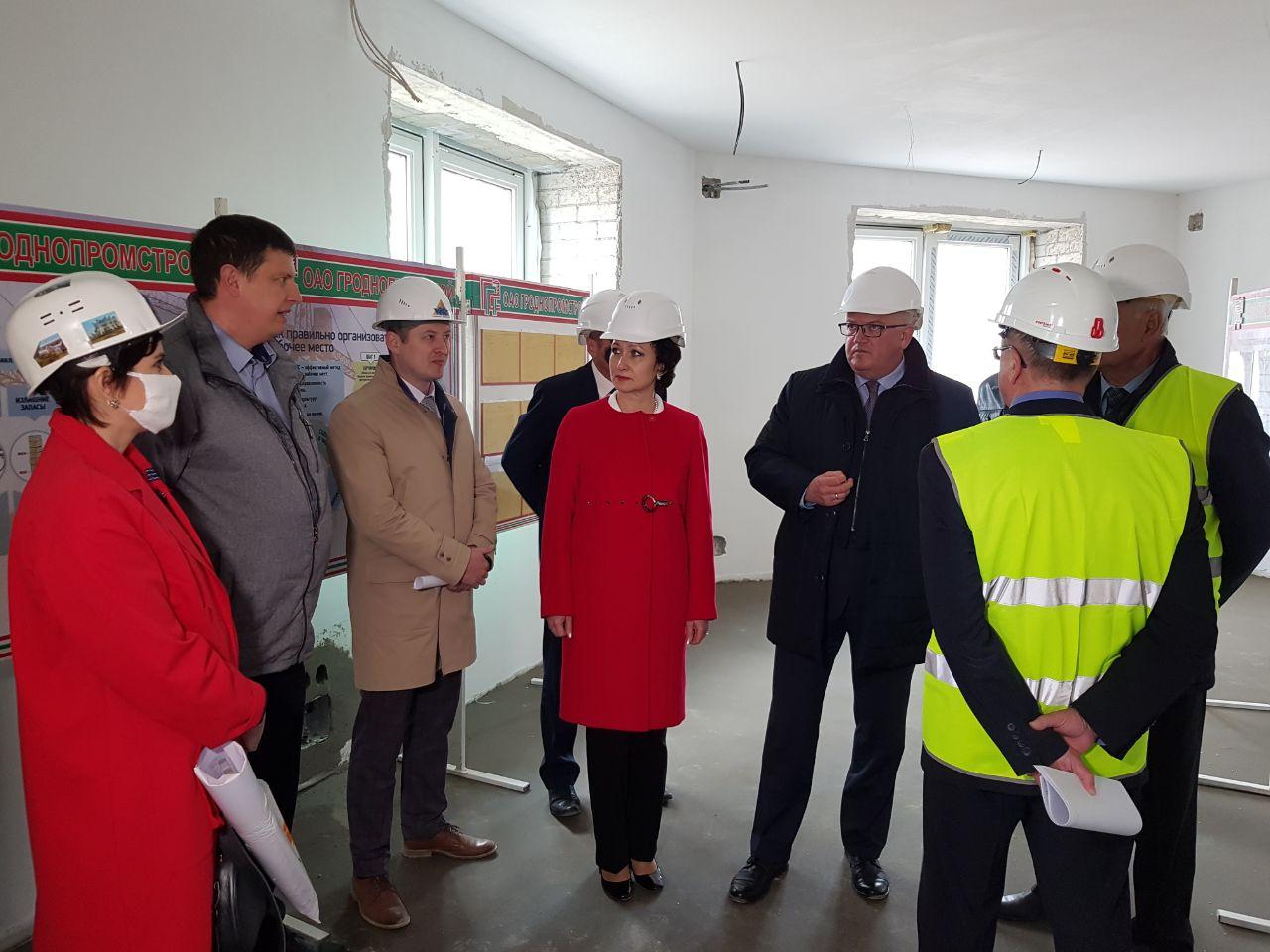
Igor Karpenko has already got acquainted himself with the construction of the new hostel, after which he will visit the Technopark. The Minister will also be told about the educational process at the university using information and communication technologies.
In the Technopark of the Yanka Kupala State University of Grodno, Igor Karpenko will talk with residents, the Minister will also be shown the production of protective equipment for medical staff. The working trip of the Minister of Education will end with a visit to Yanka Kupala State University of Grodno. Here Igor Karpenko will get acquainted with the organization of the educational process using ICT and online training.
In the program of the working trip, the Minister of Education Igor Karpenko also visited the gymnasium No. 10 of Grodno, where he was told about the organization of the educational process in the fourth quarter of the 2019/2020 school year. In addition, the Minister was told at the Grodno State College of Engineering, Technology and Design about the organization of the educational process using ICTs and the work of production workshops for sewing protective bandages.
The team of Yanka Kupala State University of Grodno takes part in International Programming Seminar «Moscow Pre-Finalist Workshop»
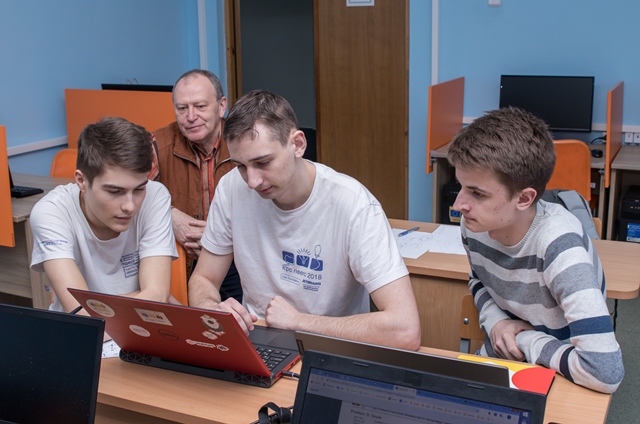
The seminar, which takes place in a remote format from April 18 to 26, brought together 70 teams from 17 countries.
Five teams represent Belarus at online training meeting. These are students from Belarusian State University, Belarusian State University of Informatics and Radio Electronics, Yanka Kupala State University Grodno.
Within the framework of the seminar, participants perform contests - five-hour tasks to solve 10-12 problems. Students also have the opportunity to participate in thematic lectures from leading experts from Moscow and St. Petersburg. It is worth noting that the Moscow Pre-Finalist Workshop seminar is a preparation for the final of the World Programming Championship.
Team Leader, Senior Lecturer, Department of Mathematical and Information Support of Economic Systems, Yuri Stepin, is sure that such competitions are a very important moment in the professional growth of students:
–Participation in the seminar gives students the opportunity to improve their professional level and evaluate their own potential. In addition, this allows our University to train highly qualified specialists for IT companies.
It is worth noting that students of the Yanka Kupala State University of Grodno achieve high results in the field of computer science and programming, and also take part in various competitions, contests and championships.
The organizer of the seminar “Moscow Pre-Finalist Workshop” is the Moscow Institute of Physics and Technology.
The Technopark of Yanka Kupala State University of Grodno is expanding the production of personal protective equipment for physicians
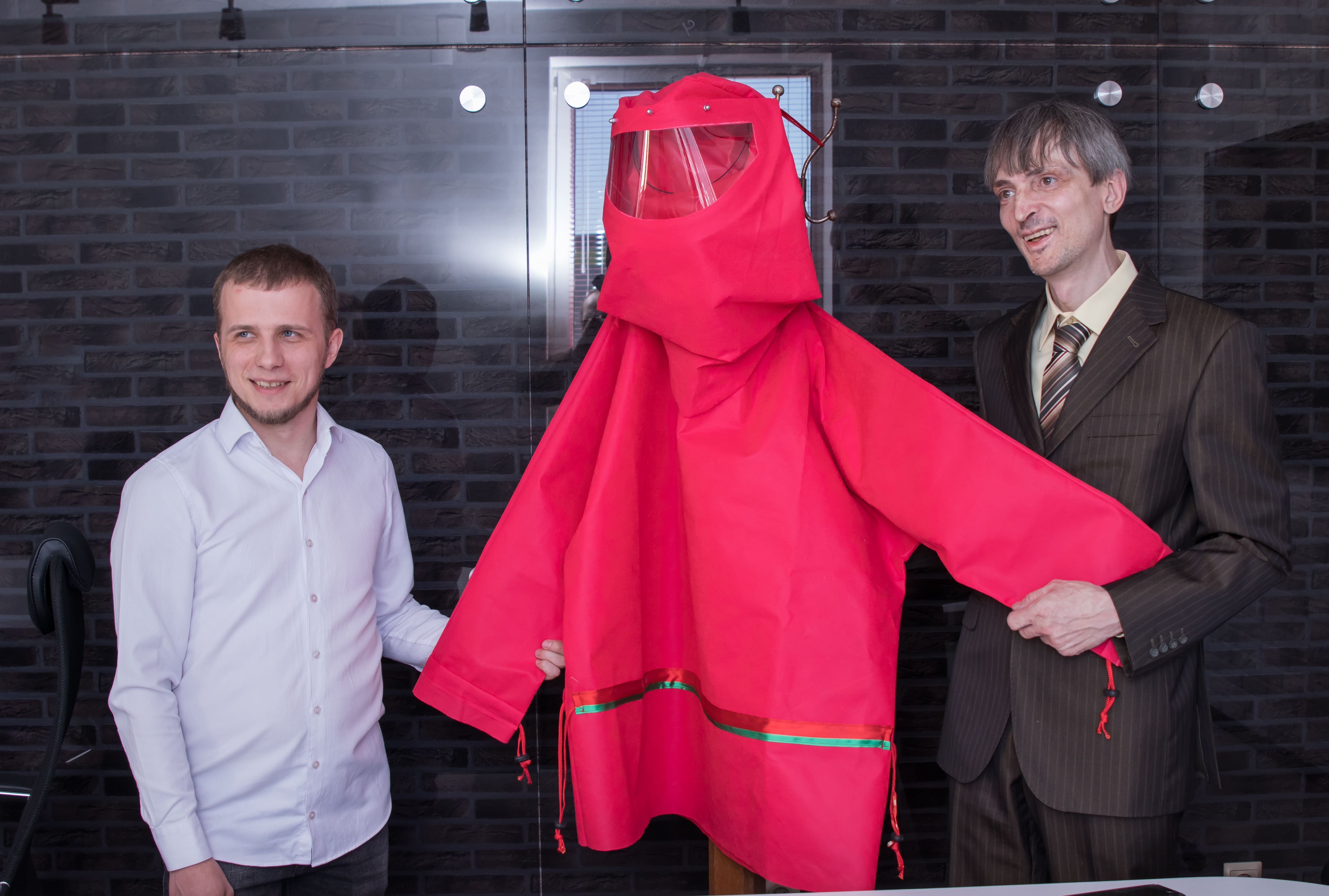
LLC «LIRA & Co» became the tenth resident of the Science and Technology Park of Yanka Kupala State University. The signing of the contract took place on April 22.
The company «LIRA & Co» is involved in the development of tools that can be useful and relevant for the current epidemic in the world. Employees of the enterprise demonstrated two ready-made models of protective equipment; there is one more model in development plans. Today, they all focus on different stages of the fight against coronavirus infection. By the way, the team of developers - specialists from different fields - can work in the digital direction, that is, remotely, without reference to one place.
- We have developed a non-contact reusable respirator. This model does not need to be worn on the face, it completely seals the area around the head. They can be disinfected and used more than once, - says the head of the company Pavel Krivenko.
The team also creates protective suits:
- Our products are thought out to the smallest detail. It looks like an ordinary suit, but we used in it a lot of technological approaches. In addition, to improve the product, we test it. For example, the resuscitator can be in this suit for a very long time, from 6 to 12 hours, therefore, for each type of medical direction, these products are modified and changed.
It is worth noting that LLC «LIRA & Co» is already interacting with several medical organizations, including acting as sponsors.
Free distance learning courses started
In November 2019, at 6 Belarusian universities (Belarusian State Academy of Agriculture, Brest State Technical University, Vitebsk State University named after P.M. Masherov, Sukhoi State Technical University of Gomel, Yanka Kupala State University of Grodno, Polotsk State University) started free distance learning courses for the population.
In the framework of the international CBHE project «Enhancement of Lifelong Learning in Belarus» (586278-EPP-1-2017-1-LV-EPPKA2-CBHE-JP),financed by EU, teams of six Belarussian regional universities have developed distance learning courses for the population.
All created courses are focused on the development of practical skills and competencies that are in demand in everyday life. The development used the experience of European universities in the United Kingdom, Spain, Latvia, Sweden.
Within four months, population of the regions will be able to undergo free training in English Language, Information Security, Basics of Legal Literacy, Entrepreneurship and Financial Literacy, Energy and Resource Saving in Everyday Life.
Personal computer, laptop or smartphone with Internet access are necessary for training. Offline training is also provided.
At the end of the training course participants will receive a certificate of the international project of the European Union’s program ERASMUS +.
Detailed information on courses and training opportunities is presented in the «Study courses» section.
Seminar and Conference in Genoa, Italy
9-13 December 2019, at the University of Genoa (Italy), within the framework of the UniTeLE project, a training seminar and training on active teaching methods for representatives of six Belarusian universities, members of the project consortium, as well as an international conference dedicated to the 20th anniversary of the Bologna Declaration were held.
2 representatives of Yanka Kupala State University of Grodno: Oleg Kolyago the Head of the Educational Innovation Laboratory and Alexei Abelevskij the senior lecturer of the Physical Education and Sports Chair took part in this project activity.
Andrea Frucco and project coordinators, professor, Dr. Guido F. Amoretti, professor Diana Spulber opened the international event. The project coordinators spoke in detail about the directions of the university’s work, noted that high-quality higher education brings about 30 million Euro to the university. The quality of modern education was discussed at the seminar: from the historical and social approach to the quality of education, to ensuring quality through accreditation of courses and the development of university policy, academic development of teachers. Representatives of six Belarusian universities: GSTU, BSU, BrSTU, BSAA, PSU, YKSUG, as well as universities in Italy, Moldova, Azerbaijan, Ukraine, actively participated in the discussion of the use of active teaching methods in the educational activities of universities.
The seminar participants discussed the active methods used at the universities of Genoa learning. The pedagogical techniques studied in theory and practice of active learning methods, motivating students to independent, proactive and creative development of educational material generate the interest of participants. Among them were methods such as: case study, problem based learning, simulation / role playing, project based learning. The use of the possibilities of using tools for creating presentations, organizing meetings, events and making the Mentimeter interactive was also considered. The main trend is the formation of programs taking into account the capabilities of the student and the requirements of the future profession. The introduction of new active pedagogical technologies, the dissemination of successful competent and scientific experience of European countries will improve the system of increasing the pedagogical skills of teachers in Belarus.
Kick-off meeting of the new project “University Teaching and Learning Enhancement” (UniTeLE)
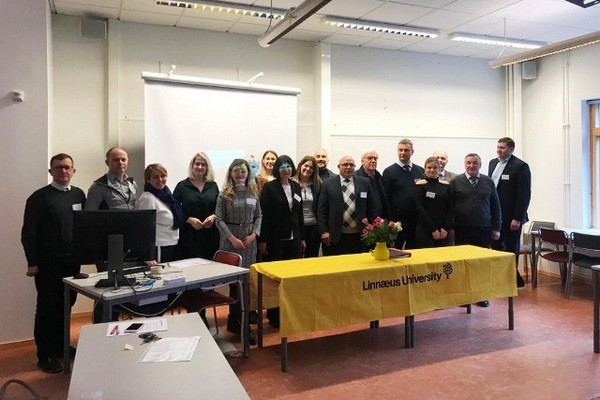
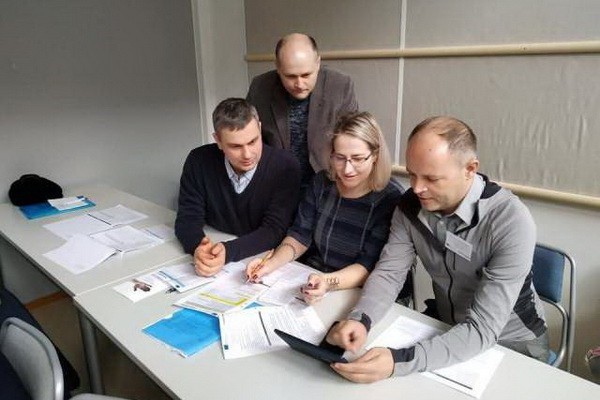
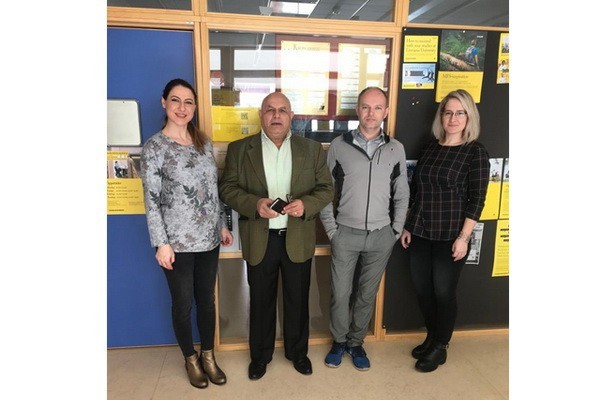
20/03-22/03/2019
The representatives of Yanka Kupala State University of Grodno took part in the first meeting in the framework of the project “University Teaching and Learning Enhancement” at Linneus Unoversity of Växjö. The Head of the International Projects Department of Education Internationalization Center, Viktoriya Kerget and the Head of the Educational Department of the Eeducational-methodical Department Anatol Bahdevich presented to the project partners Yanka Kupala State University results in the field of international project activities, the implementation of innovative educational technologies and a quality management system.
Within the framework of the first meeting participants developed a plan and stages for the implementation of the project and the distribution of responsibilities was also agreed. Implementation of the project results will allow Yanka Kupala State University of Grodno to move on the way of innovative development, improving the organization of the educational process at the university in accordance with European standards for ensuring the quality of education.
As a result of the implementation of the UniTeLE project, it is planned to create a Center for Academic Development and Pedagogical Training at the University, to develop
and introduce innovative educational methods. An important aspect of the project is the development of pedagogical interaction and pedagogical networks for employees
of universities in Sweden, Italy, Germany, Turkey and Belarus. The Yanka Kupala State University of Grodno organized training using information and communication technologies
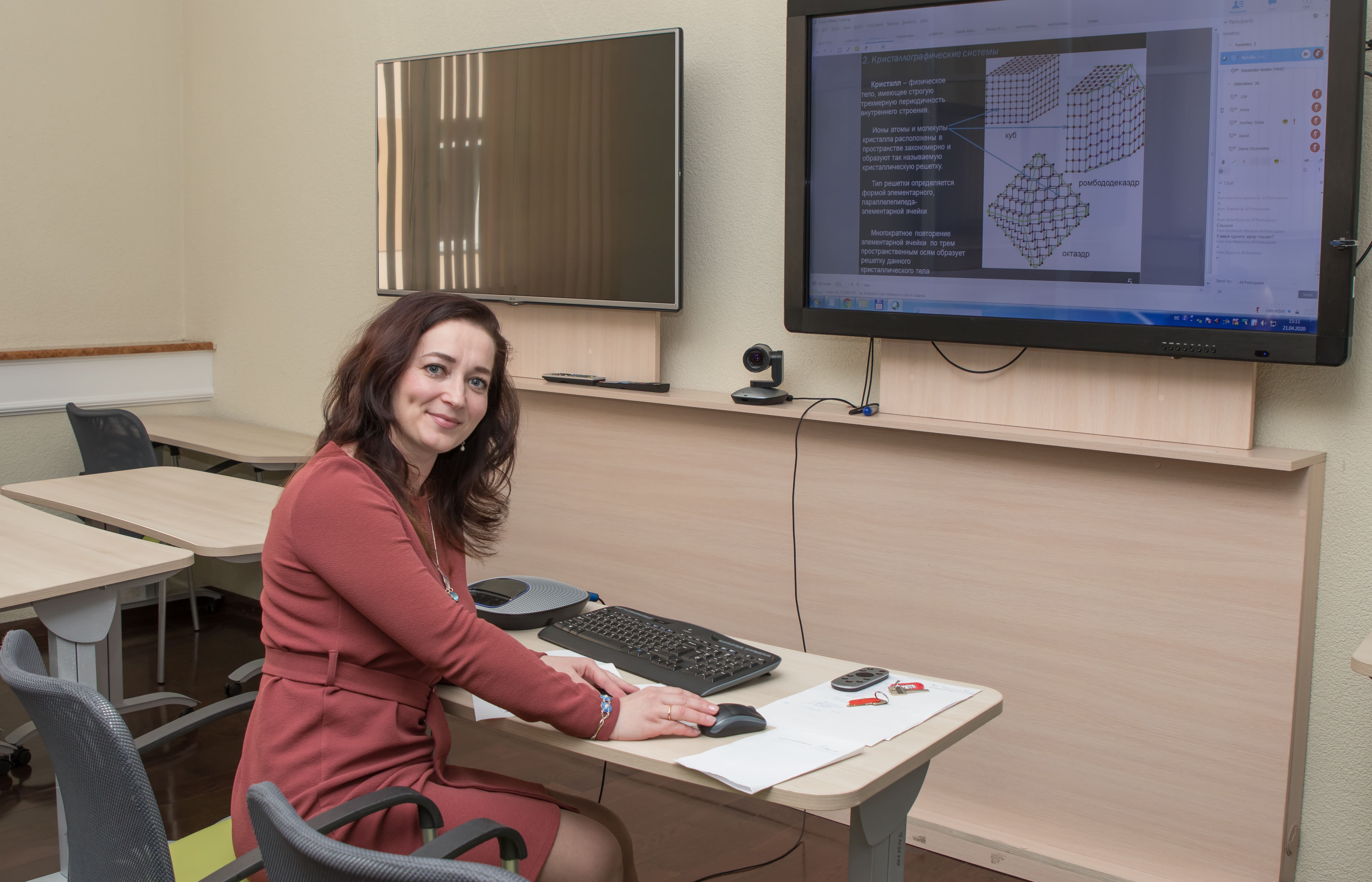
More than 900 online lessons are taught daily by teachers at University.
Since the beginning of this week, the classrooms and corridors of the Yanka Kupala State University of Grodno have been unusually quiet: until May 8, the educational process to ensure a safe environment has been transferred to virtual space. Teachers say almost all students “attend” online classes regularly.
“The entire educational process, while maintaining its content and quality of training, has been transferred to the university’s educational portal and organized online,” said Marina Kolotsey, the head of the educational-methodical department of the Yanka Kupala State University. - In order to use widely this form of work in the organization of the educational process, our university has been ready long time ago. The fact is that the educational portal of the Yanka Kupala State University of Grodno has been functioning for more than 10 years. And today it is not only a repository of information, where all the educational and methodological complexes in each discipline are concentrated, but also a convenient platform for communication between teachers and students.
In addition to the educational portal, the university also uses other online platforms for virtual communication between teachers and students: WebEx, Zoom, Skype, as well as social networks. By the way, the schedule of academic disciplines remained unchanged, only some adjustments were made: now, in the schedule opposite each discipline, a virtual platform is indicated instead of the class number, and laboratory classes that require the use of special equipment have been postponed to a later time.
- The university has all the conditions for conducting remote classes. We have both an educational media complex and classrooms in the scientific library, which are convenient for teachers to work with, ”explained Marina Kolotsey. - In addition, if necessary, the university is ready to provide both technical and advisory assistance to those teachers who have difficulty in organizing the educational process in a new format. For all teachers, step-by-step instructions have been prepared, they are posted on the educational portal of the university. These instructions provide detailed instructions on how to give a lecture, practical, seminar or laboratory lesson, as well as how to conduct an online test. Thus, today we have provided technically and methodically all forms of training and knowledge control.
Since the second semester is the time of preparation for term papers and dissertations, the curriculum also provides for consultations both online and offline. At the Yanka Kupala State University of Grodno, they are sure that the quality of the educational process will not suffer.
“It’s customary for me to conduct lectures in the webinar format,” Natalya Valko, assistant professor of general physics, shares her opinion a few minutes before the start of the next online lecture. - My students are mainly future programmers, and it can be said that they are even more interested in working this way. Now we communicate with students almost continuously.
Student Mikhail, who was present at the lecture of the teacher Natalia Valko, in turn, noted that the content of the training did not change at all. All materials are available, feedback has been established with the teacher, which means that both students and university staff continue to work effectively. Moreover, everyone is trying to get the most out of the situation. So, university employees see a plus, first of all, in the fact that in the next two to three weeks they will be able to increase significantly their level of ownership of information and communication competencies.
Employees and students of Yanka Kupala State University provide assistance to Grodno doctors
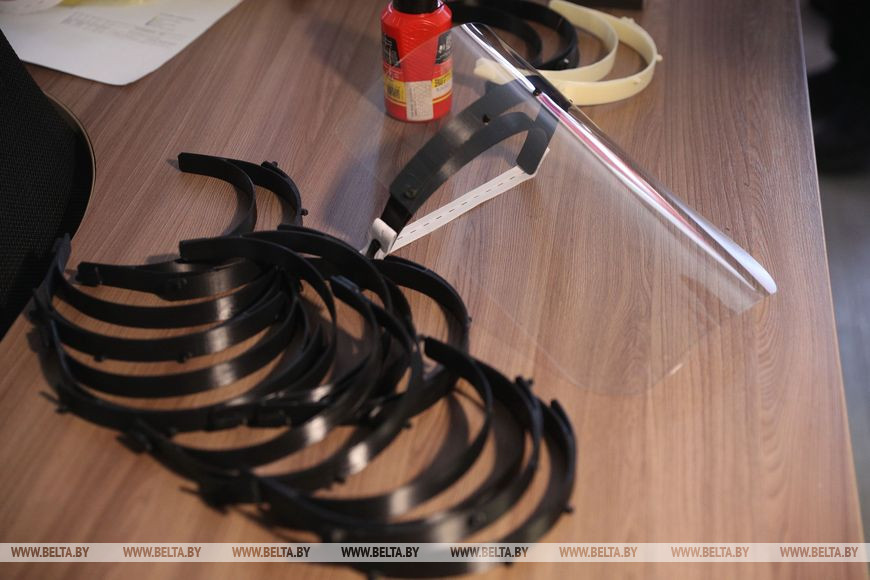
One hundred protective screens for physicians, purchased at the expense of the trade union committees of workers and students of Yanka Kupala State University, were sent to medical institutions of the regional center.
The employees of the Emergency Hospital of Grodno, as well as the Grodno Regional Children's Clinical Hospital and the City Clinical Hospital No. 2 of Grodno, have already received protective screens from University. The City Clinical Hospital No. 3 of Grodno is ready to accept assistance from trade union activists of the university. The need in providing with the additional means of protecting from other medical institutions of the regional center is being studied.
“Now we are actively communicating with the representatives of the Grodno Healthcare Trade Union, who help us collect reliable information about which medical institutions lack remedies for physicians,” said Igor Kerget, chairman of the trade union committee of Yanka Kupala State University.
Together with the protective screens, trade union activists - employees and students of the Yanka Kupala State University of Grodno - will give dispensers for hand sanitization to medical institutions in the city of Grodno. As noted in the university trade union committee, Kupalists will continue to provide all possible assistance to physicians in this busy period.
Students from Yanka Kupala State University of Grodno are invited to participate in creative online contests in the social network Instagram
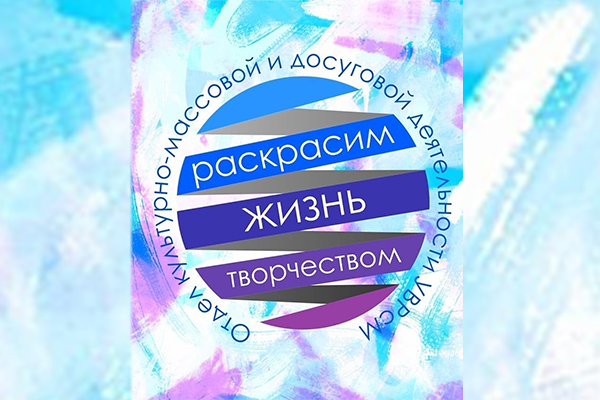
The organizers are waiting for talented students of Yanka Kupala State University of Grodno to participate in contests of author’s song, choreography and standup comedy.
Creative online competitions are designed to support young, talented and ambitious university students. To take part in them, before May 1, you need to post your author’s creative number on video, post it on your profile in the social network Instagram, mark the account of creative center of the Yanka Kupala State University of Grodno @creation_grsu and set the hashtag of one of the contests.
So, in the framework of the vocal competition with the hashtag #пой_в_уни_song, musical compositions of various genres and styles are nominated for participation: ballad, rock music, pop song, bard song and others.
In the dance competition #танцуй_вместе_с_гргу, the organizers will appreciate the choreographic compositions of the participants in the style of modern dance: hip-hop, street jazz, jazz-funk, house, contemporary, dancehall, afro dance, popping, vogue, choreography, break dance. ⠀
For the stand up comedy contest #открытый_микрофон_гргу, participants are expected to present a humorous stand-up monologue video.
Read more about the conditions for participation in competitions here.
Creative online contests are organized by the Department of Cultural and Leisure Activities of the Department of Educational Work with Youth of Yanka Kupala State University of Grodno.
The international distance education marathon “Kupalovskyу Projects 2020” invites you to take part in testing network projects
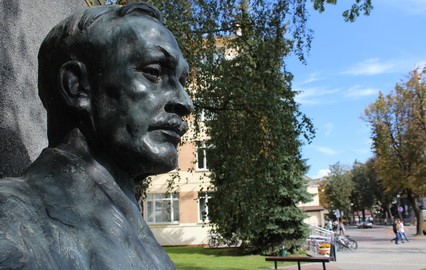
Testing of the projects created as part of the marathon and will take place from April 27 to May 17.
International distance training “Spring session. April ”aims to conduct a public-professional examination of network projects created by the participants of the marathon, increase the ICT competence of teachers and master modern interdisciplinary technologies, including distance learning technologies. Registration of participants is available here from April 20 to 26. The results of the training will be announced on June 1.
The list of network projects created as part of the marathon includes the project “Oh, recursion!”, the author is Nina Makarova, associate professor of the Department of Modern Programming Technologies at Yanka Kupala State Universityof Grodno, and Alexey Tuchinsky's «Michelin Stars project», senior lecturer at the Department of Romance Languages, BSU Department of International Relations.
Teachers, methodologists, librarians, teachers of additional education, students of educational institutions of the CIS countries are invited to participate. All those who will become participants in the testing of network projects will receive an electronic certificate from the organizing committee.
The International Distance Learning Marathon “Kupalovskye Projects 2020” started at the Yanka Kupala State University of Grodno on January 9 and will end on June 20, 2020. The marathon is aimed at teaching teachers the technology of creating educational network projects and is based on the rich experience in developing professional competencies of teachers obtained in the framework of the Kupalovsky Projects educational marathons in 2016-2019 and the distance course from Intel «Project Activity in the Information and Educational Environment in 21st century».
